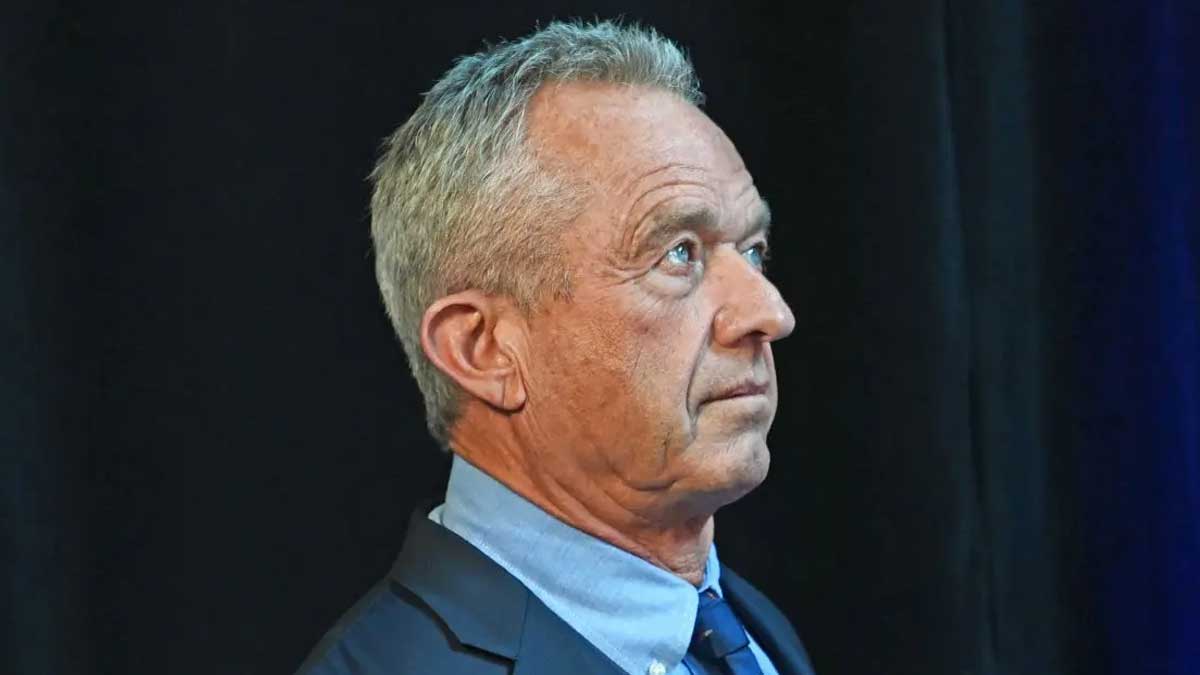- Home
- Billionaires
- Investing Newsletters
- 193CC 1000
- Article Layout 2
- Article Layout 3
- Article Layout 4
- Article Layout 5
- Article Layout 6
- Article Layout 7
- Article Layout 8
- Article Layout 9
- Article Layout 10
- Article Layout 11
- Article Layout 12
- Article Layout 13
- Article Layout 14
- Article Sidebar
- Post Format
- pages
- Archive Layouts
- Post Gallery
- Post Video Background
- Post Review
- Sponsored Post
- Leadership
- Business
- Money
- Small Business
- Innovation
- Shop
Recent Posts
RFK Jr. Apologizes for 1990s Sexual Assault Allegation

Robert F. Kennedy Jr. has issued an apology to a woman who has accused him of sexual assault that allegedly took place in the 1990s. Despite his apology, Kennedy has maintained that he does not recall the incident in question. The apology emerged following the publication of a Vanity Fair article that detailed the accusations, which prompted Kennedy, an independent presidential candidate, to address the matter. Previously, Kennedy had refrained from making any public statements to confirm or deny the allegations initially reported by Vanity Fair.
In the text messages shared by the accuser, Kennedy expressed regret two days after the Vanity Fair article was published. He stated that he did not remember the incident described by the accuser but offered a sincere apology for any actions that may have caused her discomfort or offense. Kennedy’s message emphasized that he did not intend any harm and expressed his remorse if his actions had inadvertently hurt her feelings. The apology was conveyed through text messages from a number listed in legal documents as Kennedy’s.
The Washington Post was the first to report on Kennedy’s apology, identifying the accuser as Eliza Cooney. According to Cooney, who was employed as a live-in babysitter for Kennedy’s family during the late 1990s, Kennedy allegedly made inappropriate advances on her. Cooney claimed that Kennedy had asked her to apply lotion to his back and that he groped her on two separate occasions. One of these incidents reportedly occurred in the kitchen when Kennedy supposedly blocked her path and groped her. The other incident allegedly happened when Kennedy rubbed her leg under a table. Cooney’s account was detailed in the Vanity Fair article, which included the text messages between her and Kennedy as evidence.
Kennedy responded to the claims by stating that the text message he sent should be taken at face value, choosing not to elaborate further on the matter. He did not provide additional comments when approached by the media for further clarification.
Following the Vanity Fair article, Kennedy appeared on the YouTube podcast Breaking Points. During the interview, he acknowledged having a history of personal mistakes but did not address the specific allegations made by Cooney. He described himself as “not a church boy” and admitted to having numerous past indiscretions, yet he refrained from discussing the details of the accusations against him.
Kennedy, who is running as an independent candidate in the presidential race after a brief campaign for the Democratic nomination, is known for his controversial views. As the nephew of former President John F. Kennedy, Kennedy has been a proponent of various conspiracy theories, including unfounded claims that COVID-19 was engineered to target specific ethnic groups and that mass shootings can be attributed to prescription drugs. Additionally, he has been a prominent anti-vaccine advocate. His candidacy has garnered approximately 10% support in recent polls, leading to concerns among both Republican and Democratic parties that he could siphon votes away from their respective candidates. Kennedy has particularly appealed to younger and Latino voters, who are significant demographics for the Democratic Party.
The Vanity Fair article also included a contentious allegation that Kennedy had once dined on barbecued dog meat. The article featured a photograph that purportedly showed Kennedy holding what appeared to be “barbecued remains of a dog” near his mouth. Kennedy has vehemently denied these claims, clarifying in the Breaking Points interview that the photograph actually depicted him eating goat meat while in Patagonia. In response to the article, Kennedy criticized Vanity Fair on social media, accusing the publication of descending to the level of “supermarket tabloids.”
Recent Posts
Categories
- 193cc Digital Assets2
- 5G1
- Aerospace & Defense46
- AI37
- Arts3
- Banking & Insurance11
- Big Data3
- Billionaires449
- Boats & Planes1
- Business328
- Careers13
- Cars & Bikes76
- CEO Network1
- CFO Network17
- CHRO Network1
- CIO Network1
- Cloud10
- CMO Network18
- Commercial Real Estate7
- Consultant1
- Consumer Tech180
- CxO1
- Cybersecurity68
- Dining1
- Diversity, Equity & Inclusion4
- Education7
- Energy8
- Enterprise Tech29
- Events11
- Fintech1
- Food & Drink2
- Franchises1
- Freelance1
- Future Of Work2
- Games141
- GIG1
- Healthcare78
- Hollywood & Entertainment186
- Houses1
- Innovation42
- Investing2
- Investing Newsletters4
- Leadership65
- Lifestyle11
- Manufacturing1
- Markets20
- Media193
- Mobile phone1
- Money13
- Personal Finance2
- Policy567
- Real Estate1
- Research6
- Retail1
- Retirement1
- Small Business1
- SportsMoney33
- Style & Beauty1
- Success Income1
- Taxes2
- Travel10
- Uncategorized8
- Vices1
- Watches & Jewelry2
- world's billionaires418
Related Articles
Trump Moves $4B Stake in Truth Social Parent, Stock Drops 6%
Donald Trump recently transferred his 57% stake in Trump Media & Technology...
By 193cc Agency CouncilDecember 20, 2024House Rejects Trump-Backed Funding Bill, Shutdown Looms
The U.S. House of Representatives rejected a new government funding bill on...
By 193cc Agency CouncilDecember 20, 2024Trump Named Time’s Person of the Year for Second Time
On Thursday, Time magazine honored Donald Trump as its “Person of the...
By 193cc Agency CouncilDecember 12, 2024Meta Donates $1 Million to Trump’s Inaugural Fund
Meta, the parent company of Facebook and Instagram, has confirmed a $1...
By 193cc Agency CouncilDecember 12, 2024















Leave a comment